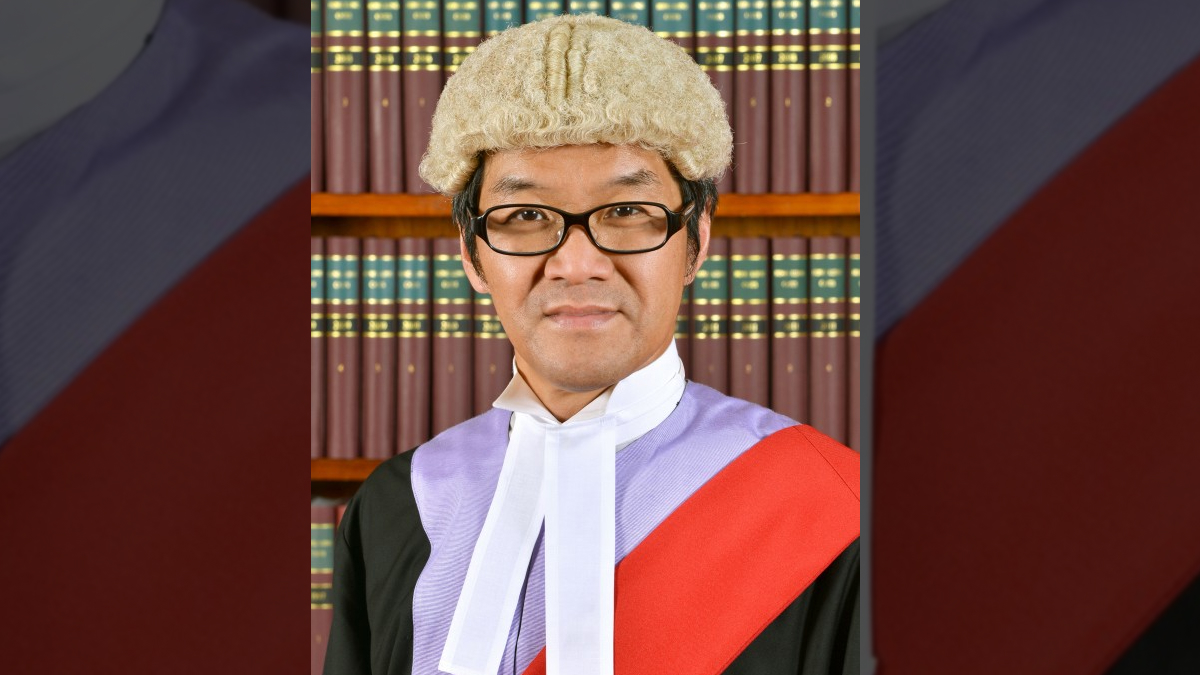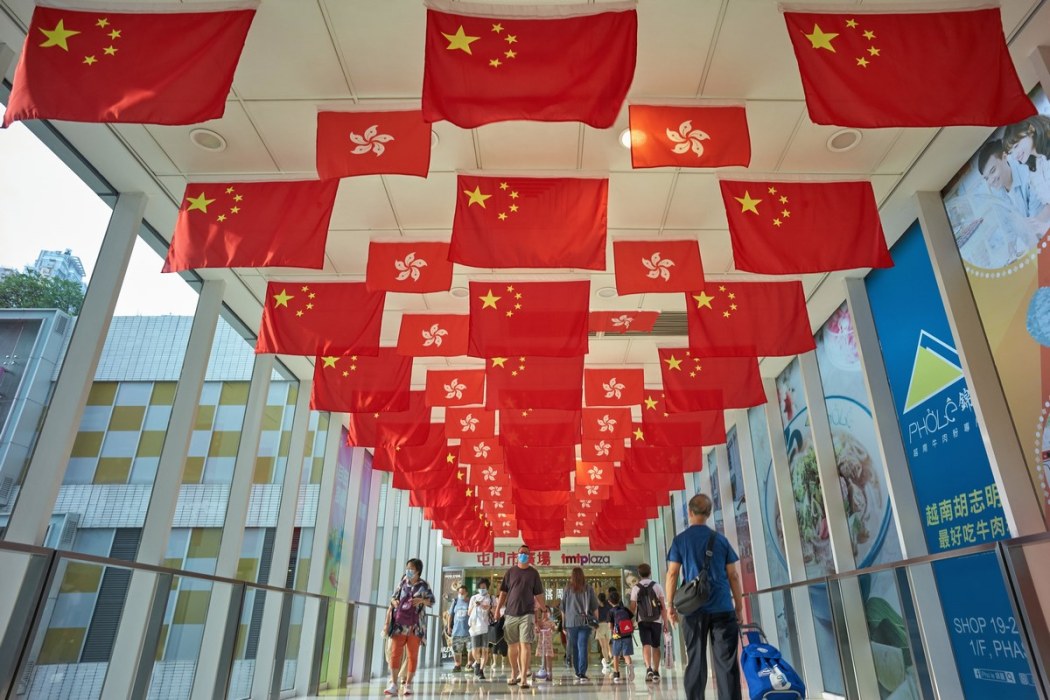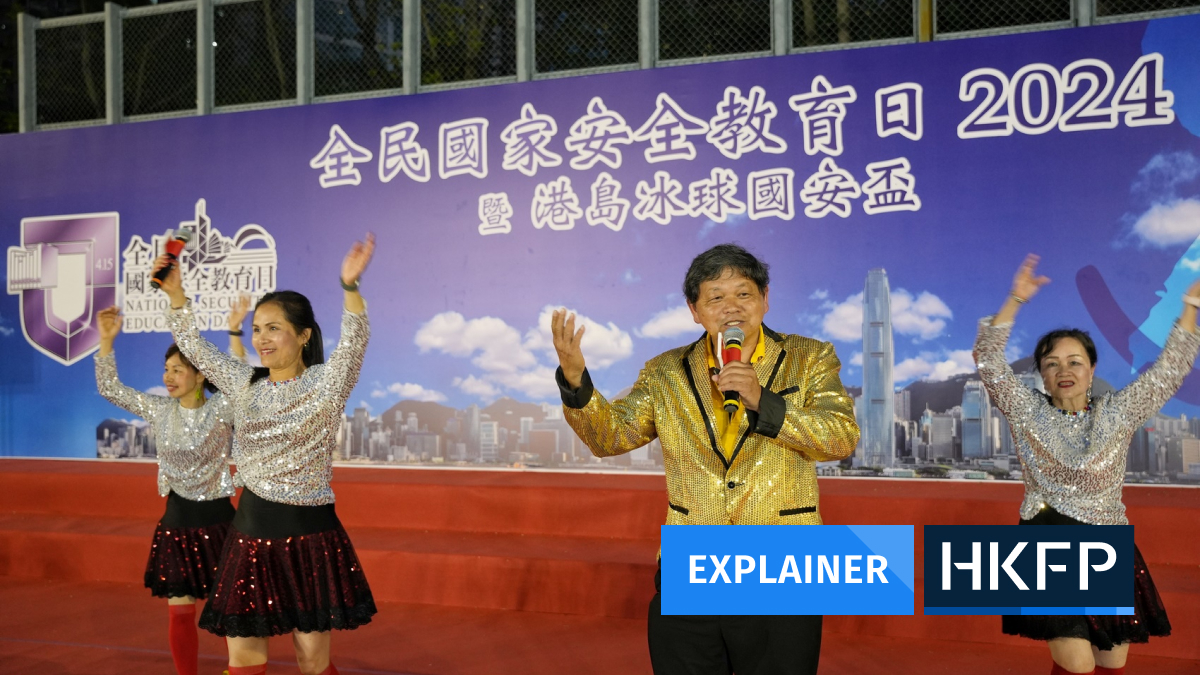A Hong Kong teenager has pleaded guilty to conspiring to print, publish, distribute, display, or reproduce seditious publications under the colonial-era sedition law over a leaflet advocating the city’s independence.
Wong Chun-wai, a 17-year-old secondary school student, appeared in front of Judge Kwok Wai-kin at the District Court on Monday alongside Chloe Cho, a clerk at the Hong Kong Institute Of Vocational Education. Cho also pleaded guilty to the same charge.

According to the prosecution, the leaflets contained messages “advocating for Hong Kong independence and urging Hong Kong people to establish an independent sovereign state, regain the dominating power and build an army.”
The summary of facts agreed by both defendants stated that the leaflets featured sentences promoting a “Federal Republic of Hong Kong” and urged people to “resist communisation.”
According to the prosecution, the pair met at an event held by the Mong Kok Gau Wu Tyun, which translates as the Mong Kok Shopping Group, in May 2020.
Cho, who was 45 years old at the time of her prosecution, asked Wong to help design the leaflets, which she distributed at the Causeway Centre, in Wan Chai, on December 11, 2020.
Cho and Wong were arrested in June last year. The clerk was remanded in custody, while Wong was granted bail last August.
‘Moving goalposts’
Before the two defendants pleaded guilty, the prosecution and the defence disputed the basis of the charge.

Hong Kong’s sedition law – which falls under the Crimes Ordinance – is different to the Beijing-imposed national security law that criminalised subversion, secession, collusion with foreign forces and terrorist acts. The sedition charge was last amended in 1972, when the city was under British colonial rule.
The prosecution argued that the leaflets fell under all four limbs of the legislation regarding seditious publications, while the defence said that the accused had only agreed to plead guilty after seeing that the charge did not include all four intentions, namely that there was any intention to incite violence.
Steven Kwan, who represented Cho, argued that the four limbs of the law should be read in a disjunctive manner.
“I must first take great exception to the way the prosecutor, just before plea, seeks to change the basis of the charge,” said Kwan.

He argued that the indictment rules were important not only because they informed the defence to the nature of the offence, but also “to tie down the prosecution to its case, so it cannot move its goalpost.”
“This is what is happening in the courtroom, and even up to today, no application to amend [the charge] has been made,” Kwan said.
Newton hearing
After the defendants pleaded guilty, Kwok ordered a Newton hearing to determine the particulars of the offence. A Newton hearing occurs when the accused do not agree with all or part of the prosecution’s facts, and, after hearing evidence from both parties, the judge alone decides the facts.
Senior Public Prosecutor Karen Ng argued that the Chinese text on the leaflets should be read in context along with the Bauhinia design.
The leaflet asked Hong Kong people to “build an army,” which was to use force, Ng said.
“This meaning is more apparent when we look at the Bauhinia design. Not only is the Bauhinia design withered… more importantly, when we look at the Bauhinia design, there is red paint on it,” said Ng.

The prosecutor said that Wong admitted in a video interview that the red paint represented blood.
“Reading the leaflet design, in context and together, is to incite people to use violence or to use force to resist against the PRC [People’s Republic of China] or the Hong Kong government,” Ng said.
In response, Kwan said that “the so-called interpretation put upon these two pages by the prosecution is nothing more than imagination.”
Kwan said while the leaflet was an “incitement to procure the alteration otherwise by unlawful means,” it did not “necessarily import the notion of violence,” and that it featured no words directly referring to the use of violence.
After hearing from the prosecution and the defence, as well as the mitigation statements from both defence counsels, Kwok adjourned the case to January 31, when he will hand down sentencing, as well as a decision on the particulars of the offence.
The judge also ordered that Wong be remanded in custody until sentencing, and rejected a bail application from Cho.
Support HKFP | Policies & Ethics | Error/typo? | Contact Us | Newsletter | Transparency & Annual Report | Apps
Help safeguard press freedom & keep HKFP free for all readers by supporting our team

LATEST FROM HKFP
HKFP has an impartial stance, transparent funding, and balanced coverage guided by an Ethics Code and Corrections Policy.
Support press freedom & help us surpass 1,000 monthly Patrons: 100% independent, governed by an ethics code & not-for-profit.










